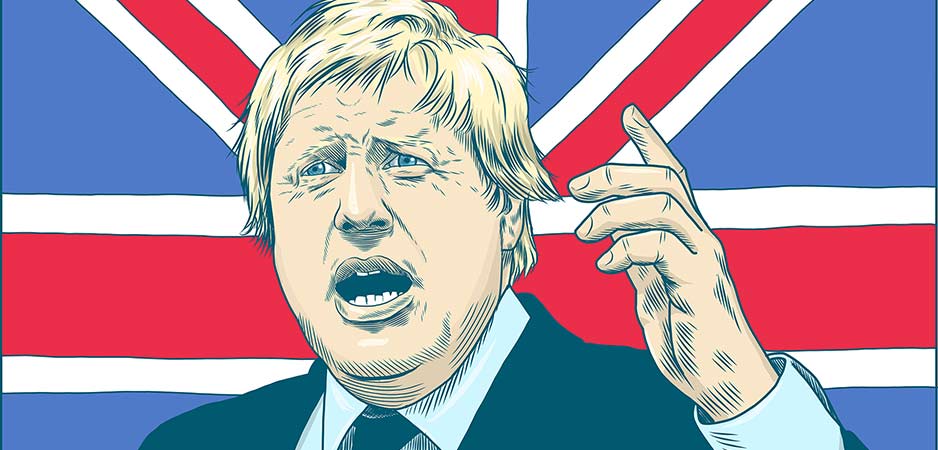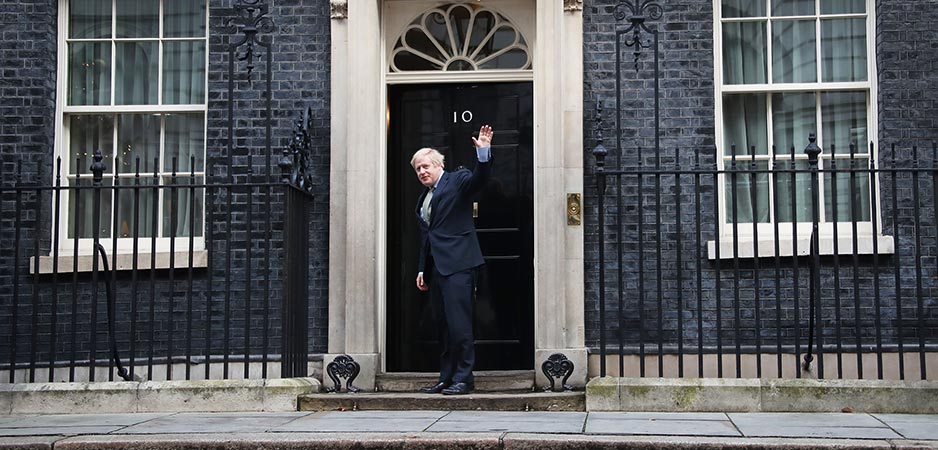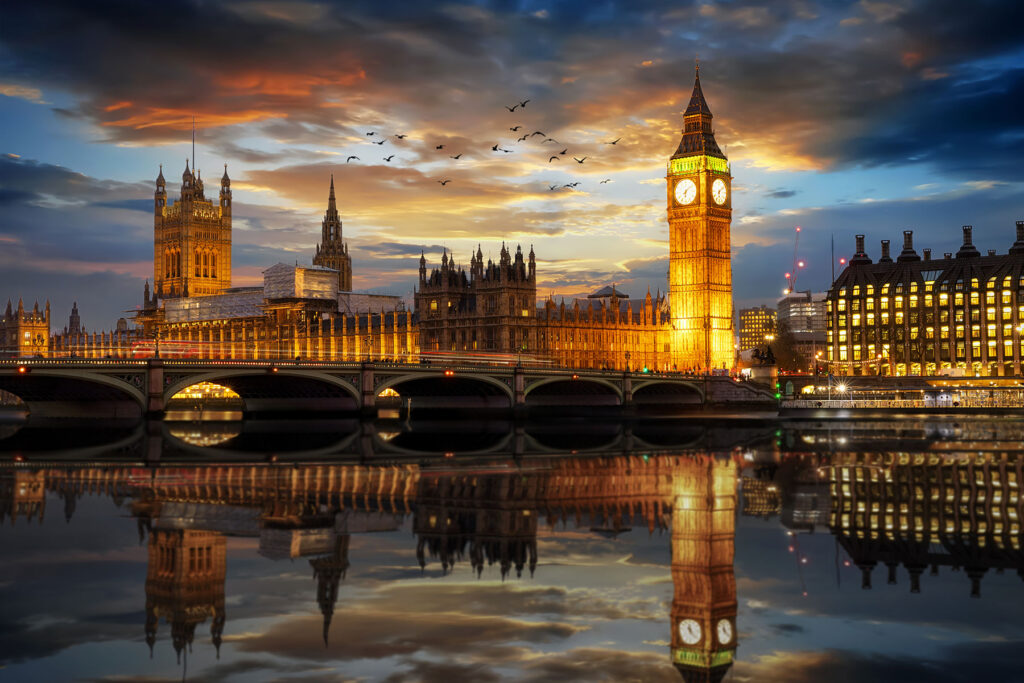The political tremors of the 2022 local election results will be keenly felt for months and years to come across the United Kingdom with potentially severe consequences for the Union.
As the ballots are counted and results are declared across the country, a clear picture emerges: these local elections are the most consequential local elections in decades.
If the results of the local elections were to be replicated in a general election, we will find ourselves in hung Parliament territory where several scenarios could emerge, primarily based on and dictated by the number of seats secured in the House of Commons by the Labour and Liberal Democrats.
Bumbling Boris
Boris Johnson’s leadership of the Conservative Party has been a controversial one. The Conservatives and the country have not experienced a leader like Johnson before. His career as a journalist and politician is littered with transgressions and misdemeanors.
Boris Johnson is the ultimate Teflon politician. In the words of his lifelong friend and rival David Cameron, “Boris always been able to get away with things that mere mortals can’t”. Cameron certainly did not get away with the Brexit referendum that led to his downfall as prime minister. In contrast, Johnson has sailed through one scandal after another and won a thumping majority in the 2019 elections.
Before those elections, Johnson’s unconventional leadership of the Tories in its first few months involved unlawfully proroguing Parliament and removing the whip from 21 of his MPs who voted to block a disastrous no-deal Brexit that the prime minister was pursuing at the time. Those MPs included party grandees and bigwigs such as former chancellors of the exchequer Ken Clarke and Phillip Hammond, and former ministers Dominic Grieve, Oliver Letwin, Rory Stewart, Ed Vaizey, and even Nicholas Soames, the grandson of the revered wartime Conservative Prime Minister Winston Churchill.
Johnson’s leadership of the Conservatives involves an implicit pact between himself and his party. His history of transgressions and misdemeanors, and economic relationship with the truth and facts as well as his antiques are tolerated as long as he wins elections. In the 2019 elections, Johnson upheld his side of the bargain and delivered an 80-seat majority for the Conservatives.
In the wake of the 2019 election results, Tory strategists and spin doctors claimed that Boris’ antics and his scandalous personal life were always ‘priced in’ by large parts of the electorate. Last week’s local election results dispute this Tory claim. It turns out that voters repeatedly raised the partygate scandal when campaigners and journalists turned up at their doorsteps.
The Conservative Party is extraordinary at winning elections. They are good at stealing the clothes of other parties and doing what is necessary to win. That involves ruthlessly knifing their leaders when they stop winning. No Tory leader has been exempt from this rule, including Winston Churchill and Margaret Thatcher. Yet Tory knifing is a clinical cold-blooded affair. MPs knife their leader when credible successors lie in wait to mount the saddle.

Boris Johnson: Bumbling Buffoon, Pied Piper or Churchillian Statesman?
So far, Johnson has ensured that there is no successor lying in wait. Despite partygate and the cost-of-living crisis, Johnson’s position is secure because he has ruthlessly eliminated all potential rivals. Rishi Sunak, the current chancellor of the exchequer, was once touted as a potential prime minister but, like Icarus, he has come down to earth. Johnson is a Balliol classicist who wanted to be “world king” when he was young. Cloak and dagger palace intrigues come naturally to him. Sunak and his wife have been thrown to the wolves by the so-called Bumbling Boris whose team have leaked juicy tales of the couple’s domicile, tax and financial affairs, causing outrage among voters. Sunak can now kiss goodbye to prime minister ambitions. A career managing his father-in-law’s billions from sunny California seems more probable.
The local elections have been nothing short of disastrous for the Tories. Nearly 2,000 seats were in play. They were voted out in a quarter of the seats they were defending. Losing so many seats should put pressure on Johnson. His fast and loose reputation with the truth has finally come to haunt the Conservative Party. However, the Tories do not have any potential successors in sight and Johnson is secure for now.
Johnson is not like Cameron who resigned after losing the Brexit referendum. He has thick skin and no sense of shame. Johnson is not going to resign because he is found guilty of wrongdoing, misconduct or misjudgment. As one cabinet ally puts it, “He’s not going anywhere, his fingernails have been dug into the Downing Street window frames and he would be taken away kicking and screaming.”
Johnson is certainly in the mood to fight back against any attempt by Conservative MPs to remove him from power. For now, he still has the support of the conservative-leaning press. Tory-sympathizing journalists have gone into overdrive to spin the disastrous local elections as largely inconsequential and irrelevant for the Conservative Party. They take the view that these local elections were not a referendum on Johnson.
There is another key factor to note. The prime minister has a track record of resorting to unconstitutional methods, unlawful actions and top-level deceit to save his skin. At the moment, the only way Johnson will leave 10 Downing Street is through an election defeat.
Starmer Stakes All
Elections are complicated affairs. They are not as simple as one party or candidate beating the other. In general, power changes hands only when the ruling party loses energy, direction or cohesion or any combination of the three and the opposition party gets its act together to emerge as a ruling party in waiting. In the British system, any change in power takes two to tango. When John Major lost in 1997, the Tories were divided, discredited, exhausted and bereft of new ideas after 18 years in power. In contrast, Tony Blair and Gordon Brown offered fresh energy and projected competence. Like the 1997 elections, other changes in power were also such dual acts involving both ruling and opposition parties.
Currently, Keir Starmer is the leader of the Labour Party. He is a distinguished barrister who headed the Crown Prosecution Service. He took over in April 2020 after two failed leaders. Jeremy Corbyn presided over five turbulent and disastrous years. Before him, the uninspiring Ed Miliband squandered another five years. Starmer seemed like a sane and surefooted choice for the Labour Party. Here was a safe pair of hands who would return competence and order to the office of the Leader of Her Majesty’s Most Loyal Opposition.
Unlike most of his predecessors, Starmer is not a political animal. His approach to politics is measured and forensic. His early performances during the weekly Prime Minister’s Questions (PMQs) caught Johnson off guard. Starmer’s lawyerly approach and mannerisms were in direct contrast to that of Johnson’s populist, colorful, and theatrical political style. This rattled some Tory nerves in the early days and cheered Labour backbenchers.
Starmer’s star has waned since. His back-handed political operations and communication blunders have not helped. Starmer is comfortable with big decisions but has a blind spot for the minutiae that drive modern politics. Some of these big decisions have long been necessary. Starmer has removed the whip from Corbyn and purged Corbynistas from key offices. Starmer has also worked hard to make Labour electable again.
On Monday, May 9 — three days after the local elections — Starmer rolled the dice to take the biggest gamble of his political life. The Labour leader announced that he will step down if found guilty of breaking the stringent lockdown rules when he visited Durham, a historic city in Northeast England, in 2021 during the election campaign.
Starmer’s announcement is a very bold move. If he is cleared by the Durham Police, Starmer will stand tall next to a prime minister alleged to have misled parliament over partygate, a resigning matter under ‘normal’ circumstances. If Starmer’s move comes off, it will be the political equivalent of checkmating Boris Johnson. If Starmer is found guilty and resigns, his leadership will come to a premature end and it is unclear if the next Labour leader would benefit from such a move. The fate of British politics lies in balance on the Durham Police investigation.
Old Wine in New Bottle
Regardless of what transpires in Durham, the recent local elections provide a roadmap to toppling Tories from power. Starmer and Liberal Democrat leader Ed Davey are carefully treading a path once charted by their charismatic predecessors in the 1990s. Then Blair and Paddy Ashdown forged a Labour-Liberal non-aggression pact to unseat the Tores from power. Starmer and Davey hope this may be a winning model for the next parliamentary elections.
While Starmer only became an MP in 2015, Davey first entered parliament in the historic elections of 1997. He benefits from the advice of Baroness Olly Grender, a veteran of the Ashdown years known for her political nous. Starmer lacks Davey’s long history and subconscious memory but the Labour leader is proving to be ruthless and flexible in his pursuit for power.
Starmer and Davey might find it hard to replicate the Blair and Ashdown deal. However, the current leaders are well aware of the dividends such an arrangement could bring. If both their parties can avoid bloodletting, they could mount a challenge to Tories discredited by Johnson’s repeated shenanigans.
If the results of the recent local elections were replicated in the next parliamentary elections, the UK would have a hung parliament with no party having a clear majority. If Labour and Liberal Democrats can build on what they have done, they could oust the Tories. Both opposition parties have a strong incentive to cooperate and their leaders seem to be sensible enough to do so.
Brexit Dividend
Even though Brexit is now fait accompli, it continues to haunt British politics. The Brexit business model championed by hardline Brexiteers is flawed, irrational, contorted and thus bound to malfunction. The so-called Brexit Dividend of their dreams has so far failed to materialize. In fact, the Boris-led Brexit is turning out to be an expensive deal for the country. The independent Office for Budget Responsibility (OBR) has estimated “the decline in trade volumes to bring about 4% reduction in the size of Britain’s economy over the long run, in line with its pre-Brexit forecast”. Elsewhere, experts have calculated that Brexit is currently costing the economy to the tune of £800 million a week — and counting.
So far, the Tories have managed to hide the economic self-harm caused by Brexit. They argue that the economic downturn is due to the COVID-19 pandemic. However, the squeeze on household budgets and the cost-of-living crisis is chipping away at this Tory narrative. Voters might not yet be in the mood to punish the Conservative Party for Brexit, but they will certainly punish Tories for the pain they are suffering thanks to economic mismanagement.

Arise King Boris, Father of Brexit and Foe of Brussels
For the foreseeable future, the Conservative brand will be intimately associated with Brexit and its economic consequences. The recent elections demonstrate that the national backdrop provides the mood music even for local voter choices. Westminster and Wandsworth Councils, two historically and symbolically significant Tory councils, were won by the Labour Party in the early hours of the morning of May 6. Safe Tory seats in affluent parts of Southwest England such as Richmond and St Albans fell to the Liberal Democrats. In the words of George W. Bush, the Conservatives have taken a “thumping.”
The Disunited Kingdom
Bush never quite recovered from that 2006 midterm thumping. He left the US divided over Iraq and in the throes of a global financial crisis. Under Bumbling Boris, the Tories have embraced a disastrous Brexit business model and a toxic English ethnonationalism that threatens the integrity of The United Kingdom of Great Britain and Northern Ireland itself.
On May 5, Sinn Féin achieved a historic victory in the Northern Ireland Assembly elections. This has sent shockwaves through the Unionist Movement that seeks to keep Northern Ireland in the UK. Sinn Féin’s victory has caused further embarrassments, anxiety, and alarm for the Conservative and Unionist Party — the full name of the Tory Party — in London.
The Irish Question dominated British politics a century ago. After World War I, Ireland won its long-cherished independence from the UK and disintegrated into civil war. Northern Ireland remained in the UK but the Troubles broke out in the late 1960s. A violent sectarian conflict between Protestant unionists and Catholic nationalists caused much tragedy in this picturesque land till the Good Friday Agreement in 1998. This period of peace might be coming to an end.

Britain’s Still Got It
Never before have Catholic nationalists who aim for the reunification of Northern Ireland with the Irish Republic wielded power in Belfast. The unionists are unlikely to accept the dominance of the republicans in Northern Ireland.
The election results in Northern Ireland have put into stark relief the Northern Ireland Protocol negotiated by Johnson with the EU. It was backed by his unionist allies, especially the Democratic Unionist Party (DUP). In these elections, the unionists were divided and Sinn Féin trumped DUP to emerge as the top dog in Northern Irish politics. Together, the unionists have a greater vote share but the specter of a reunion with Ireland looms large.
Even as Northern Ireland threatens to slip out of the UK, so does Scotland. The Scottish Nationalist Party (SNP) has campaigned for independence from London before. The SNP is now the natural ruling party of Scotland and is chipping away at the foundations of the union. In the long run, the SNP wants a second referendum and to turn Scotland into an independent nation. In the Brexit referendum, Scots voted to stay in the EU. Leaving the UK and entering the EU is the SNP ambition. Bumbling Boris and political gravity are helping their cause.
The views expressed in this article are the author’s own and do not necessarily reflect Fair Observer’s editorial policy.
Support Fair Observer
We rely on your support for our independence, diversity and quality.
For more than 10 years, Fair Observer has been free, fair and independent. No billionaire owns us, no advertisers control us. We are a reader-supported nonprofit. Unlike many other publications, we keep our content free for readers regardless of where they live or whether they can afford to pay. We have no paywalls and no ads.
In the post-truth era of fake news, echo chambers and filter bubbles, we publish a plurality of perspectives from around the world. Anyone can publish with us, but everyone goes through a rigorous editorial process. So, you get fact-checked, well-reasoned content instead of noise.
We publish 2,500+ voices from 90+ countries. We also conduct education and training programs
on subjects ranging from digital media and journalism to writing and critical thinking. This
doesn’t come cheap. Servers, editors, trainers and web developers cost
money.
Please consider supporting us on a regular basis as a recurring donor or a
sustaining member.
Will you support FO’s journalism?
We rely on your support for our independence, diversity and quality.







Comment